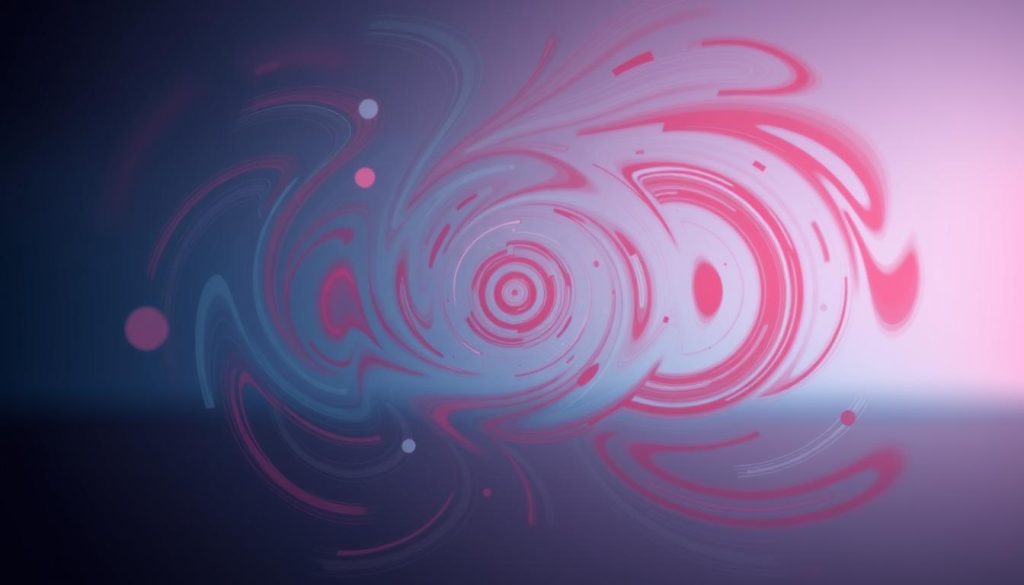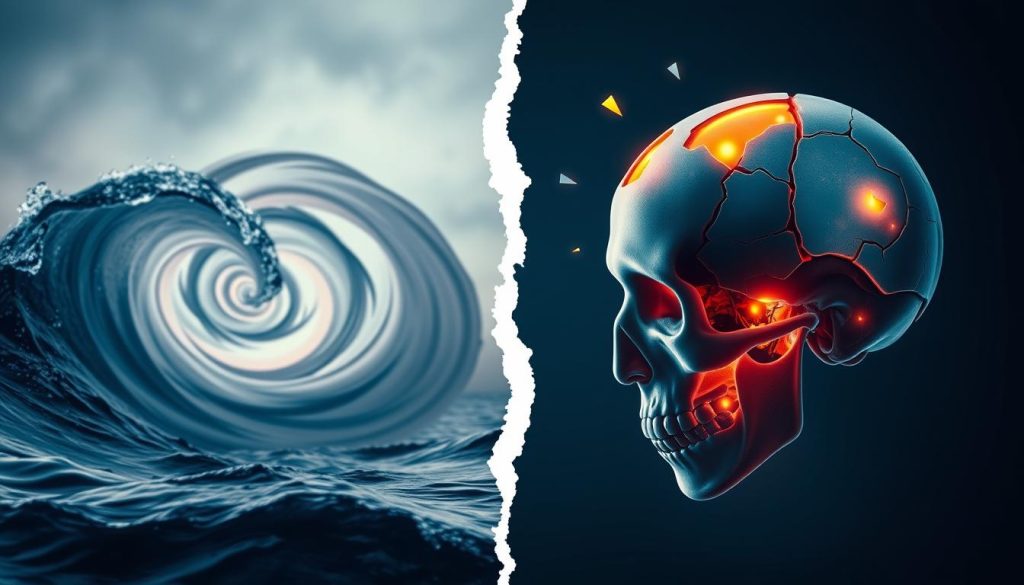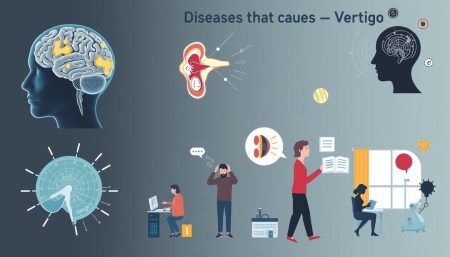Feeling dizzy or off-balance can be unsettling. Many wonder about the vertigo vs concussion symptoms they might be experiencing. This guide dives into the intricate world of these two conditions, shedding light on their unique characteristics and shared traits.
Vertigo and concussions often cause similar sensations, leading to confusion about their differences. While both can make you feel unsteady, their root causes and long-term effects differ significantly. Understanding these distinctions is crucial for proper diagnosis and treatment.
Dizziness is a common symptom that links these conditions. Post-concussion dizziness typically stems from vestibular system issues, which control balance. By exploring the differences between vertigo and concussion, we’ll equip you with the knowledge to recognize symptoms and seek appropriate care when needed.
Understanding Vertigo and Concussion: Basic Overview
Vertigo and concussions are often mixed up because they share similar symptoms. This overview will define them and clear up myths. It will help you see if vertigo is like having a concussion.
What Defines Vertigo Medically
Vertigo is a feeling of spinning or dizziness. It’s usually caused by problems in the inner ear. People with vertigo might feel like they or their surroundings are moving, even when they’re not.
Clinical Definition of Concussion
A concussion is a mild brain injury from a head or body blow. It can cause headaches, confusion, and trouble balancing. Unlike vertigo, concussions always come from a head impact.
Common Misconceptions About Both Conditions
Many ask, “Is vertigo like having a concussion?” While they share some symptoms, they are different conditions. Let’s debunk some myths:
| Misconception | Vertigo | Concussion |
|---|---|---|
| Always requires head trauma | False | True |
| Only causes dizziness | False | False |
| Symptoms resolve quickly | Varies | Varies |
| Affects balance long-term | Possible | Possible |
It’s important to understand these differences for proper diagnosis and treatment. While vertigo and concussions share some similarities, their causes and treatments are quite different.
Key Similarities Between Vertigo and Concussion Symptoms
Vertigo and concussions share many symptoms, making it hard to tell them apart. Knowing these similarities is key for the right diagnosis and treatment.
Dizziness is a big symptom in both vertigo and concussions. People often feel like they’re spinning or off-balance. This makes it tricky at first.
Balance problems are also common in both. Standing or walking can be hard. This makes it hard to tell them apart.
Nausea and vomiting are also seen in both. These symptoms can be different but are often there. Nausea makes it harder to figure out what’s going on.
| Symptom | Vertigo | Concussion |
|---|---|---|
| Dizziness | Common | Common |
| Balance Issues | Frequent | Frequent |
| Nausea | Often present | Often present |
| Headache | Sometimes | Common |
| Visual Disturbances | Possible | Possible |
The similarities between vertigo and concussion symptoms show why a detailed medical check is needed. Getting the right diagnosis is crucial for treatment and how well you’ll recover. Knowing these shared symptoms helps doctors make better choices for tests and care.
Is Vertigo Like Having A Concussion: Direct Comparison
Vertigo and concussions have some similarities but are different conditions. Let’s look at their symptoms to see how they differ.
Dizziness Patterns and Intensity
Vertigo makes you feel like you or things around you are spinning. Concussions cause a general feeling of being dizzy or lightheaded. Vertigo can be very intense, while concussion dizziness can vary.
Balance Disruption Characteristics
Both conditions affect balance but in different ways. Vertigo can cause sudden loss of balance, making it hard to stand or walk. Concussions may cause a gradual unsteadiness, affecting coordination and spatial awareness.

Duration of Symptoms
Vertigo episodes can last from a few seconds to several hours. Concussion symptoms, including dizziness, may last for days or weeks. The length of time vertigo or concussion symptoms last depends on the cause and severity.
| Symptom | Vertigo | Concussion |
|---|---|---|
| Dizziness Type | Spinning sensation | General lightheadedness |
| Balance Issues | Sudden, severe | Gradual, unsteady |
| Typical Duration | Seconds to hours | Days to weeks |
| Nausea | Common | Possible |
| Headache | Sometimes | Frequent |
Knowing these differences helps in recognizing and treating vertigo vs concussion symptoms. If you have ongoing dizziness or balance issues, see a healthcare professional for help.
Distinguishing Features That Set These Conditions Apart
Vertigo and concussions share some symptoms, but they are different. Knowing how they differ is key for the right diagnosis and treatment.
Vertigo usually comes from problems in the inner ear or vestibular system. It can be triggered by certain head movements or changes in position. On the other hand, concussions happen from direct head trauma or sudden, forceful movements that shake the brain inside the skull.
The way symptoms start is also different. Vertigo symptoms come on suddenly and can be intense but short. Concussion symptoms may start slowly over hours or days after the injury.
- Vertigo: Spinning sensation, nausea, and loss of balance
- Concussion: Headache, confusion, memory issues, and sensitivity to light and sound
When comparing vertigo and head injuries, concussions often hurt cognitive functions more. People with concussions might have trouble concentrating, memory problems, and mood swings. Vertigo, while disorienting, usually doesn’t affect thinking as much.
Recovery times are different too. Vertigo episodes might go away quickly with the right treatment or positioning. Concussions need a longer recovery, often involving rest and a slow return to normal activities.
“Recognizing the unique features of vertigo and concussions is essential for healthcare providers to deliver appropriate care and guidance to patients experiencing these conditions.”
Neurological Impact: Vertigo vs Concussion Effects
Vertigo and concussion effects can deeply affect the brain and nervous system. Knowing how these changes happen helps us understand symptoms. We’ll look at how these conditions alter brain function and affect sensory systems.
Brain Function Changes
Vertigo and concussion syndrome impact the brain differently. Vertigo mainly affects the vestibular system. Concussions, on the other hand, can disrupt many neural pathways. This often leads to dizziness, confusion, and balance problems.
Sensory System Disruptions
Both conditions can disrupt sensory processing. People with vertigo or concussion effects may notice:
- Visual disturbances
- Hearing changes
- Altered sense of balance
- Sensitivity to light and sound
Long-term Neural Consequences
While many recover, some face lasting effects. Persistent vertigo or concussion syndrome can cause chronic symptoms. It may even change brain structure. Early treatment and management are key to reducing long-term impacts.
| Aspect | Vertigo | Concussion |
|---|---|---|
| Primary Brain Area Affected | Vestibular system | Widespread |
| Typical Duration | Minutes to hours | Days to weeks |
| Risk of Long-term Effects | Low to moderate | Moderate to high |
It’s crucial to understand the neurological effects of vertigo and concussion. This knowledge helps in diagnosing and treating these conditions. Healthcare providers can then tailor treatments to meet each condition’s specific needs.
Diagnostic Methods for Both Conditions
Figuring out if you have vertigo or a concussion needs different tests. Doctors use special methods to find out. Knowing these can help you know when to see a doctor.
Medical Tests for Vertigo
Doctors use tests to check balance and eye movement for vertigo. The Dix-Hallpike test is one, where quick head movements are used. Other tests, like electronystagmography and videonystagmography, look at how the inner ear works.
Concussion Assessment Protocols
For concussions, doctors do neurological exams and tests of thinking. The SCAT5 is a common first test. It checks balance, memory, and how symptoms are felt. Sometimes, CT scans are used to check for serious brain injuries.
When to Seek Emergency Care
It’s important to know when to go to the emergency room. Go if you have:
- Sudden, severe headache
- Loss of consciousness
- Seizures
- Repeated vomiting
- Slurred speech
- Weakness on one side of the body
These signs might mean a serious problem. Vertigo and concussion have different causes and treatments. If you’re not sure, see a doctor for the right diagnosis.
| Diagnostic Method | Vertigo | Concussion |
|---|---|---|
| Primary Test | Dix-Hallpike Test | SCAT5 |
| Additional Tests | Electronystagmography | Neurological Exam |
| Imaging | MRI (if needed) | CT Scan (if needed) |
| Duration of Diagnosis | 15-30 minutes | 30-60 minutes |
Treatment Approaches and Recovery Timeline
Treating vertigo and concussion needs a personal touch. Vertigo might get better with head movements and exercises. Concussions, on the other hand, need rest and a slow return to activities.
- Vestibular rehabilitation
- Canalith repositioning procedures
- Medication for symptom relief
Concussion treatment usually includes:
- Physical and cognitive rest
- Gradual return to normal activities
- Monitoring for worsening symptoms
The recovery time for vertigo and concussion varies. Vertigo often gets better in weeks. Concussions might take days to months to heal. Understanding the recovery process is key for both conditions.
| Condition | Average Recovery Time | Key Treatment |
|---|---|---|
| Vertigo | 2-6 weeks | Vestibular exercises |
| Concussion | 7-10 days (up to several months) | Rest and gradual activity increase |
Recovery depends on age, symptom severity, and treatment adherence. Regular check-ups with doctors help track progress in treating vertigo and concussion.
Prevention Strategies and Risk Factors
It’s important to know how to prevent vertigo and concussions. Even though they are different, some prevention methods are the same. Let’s look at how to lower risks and manage symptoms well.
Avoiding Vertigo Triggers
What triggers vertigo can vary from person to person. Common ones include sudden head movements, stress, and certain foods. Keeping a symptom diary can help find what triggers your vertigo. Slow head movements and stress-reducing activities can also help.
Concussion Prevention Methods
To prevent concussions, we need to focus on safety. Wearing the right protective gear, using seatbelts, and making homes safer are key steps. Doing balance exercises regularly can also help avoid falls and head injuries.
Lifestyle Modifications
Making lifestyle changes is crucial for both vertigo and post-concussion syndrome. Regular exercise, enough sleep, and a healthy diet are important for overall health. For vertigo, exercises that help the vestibular system can improve balance. After a concussion, it’s important to rest your brain and slowly get back to activities.
- Stay hydrated
- Limit alcohol and caffeine intake
- Practice good sleep hygiene
- Engage in low-impact exercises
By following these prevention tips, you can lower your chances of vertigo episodes or concussions. Remember, it’s always better to prevent than to cure these conditions.
Long-term Management and Prognosis
Knowing how to manage vertigo and concussion long-term is key. Both need ongoing care to help them heal well and avoid problems.
Dealing with vertigo and concussion involves different steps. For vertigo, exercises and medicine might help. Concussions need rest, slow return to activities, and therapy for the mind.

- How bad the symptoms were at first
- How quickly and well they were treated
- How well the patient follows the treatment plan
- If there are other health issues
Vertigo patients usually see their symptoms lessen or go away with the right care. But, concussions can be harder to get over. Some people might still have symptoms for a long time.
| Condition | Typical Recovery Time | Potential Long-term Issues |
|---|---|---|
| Vertigo | Weeks to months | Recurrent episodes, balance problems |
| Concussion | Days to weeks (80% of cases) | Cognitive deficits, headaches, mood changes |
Seeing your doctor regularly is important for both conditions. It helps adjust treatments and catch any new problems early. Always talk to your doctor about any ongoing symptoms or worries.
“Patience and persistence are key in managing both vertigo and concussion long-term. Recovery is often a journey, not a destination.”
By being informed and involved in your care, you can better your chances of recovery. This helps improve your life while dealing with these tough conditions.
Conclusion: Navigating Vertigo and Concussion Symptoms
Understanding if vertigo is like having a concussion is key for health care. Both share some symptoms, but they have different causes and effects. It’s important to know the unique signs of each to get the right diagnosis and treatment.
Getting the right medical care is crucial for vertigo or concussion. If you’re feeling dizzy or have trouble balancing, see a doctor. Early treatment can make a big difference and prevent worse problems. Research shows that timely evaluation of post-concussive symptoms can lead to better treatment.
Even though vertigo and concussions have some similar symptoms, they need different treatments. Knowing about the symptoms, how doctors diagnose them, and treatment options can help protect your health. Always talk to healthcare experts for advice and care that fits your needs.
FAQ
Q: Is vertigo the same as having a concussion?
A: No, vertigo and concussions are not the same. They share some symptoms like dizziness. But they have different causes and effects on the body. Vertigo makes you feel like you’re spinning, while a concussion is a brain injury from impact.
Q: Can a concussion cause vertigo?
A: Yes, a concussion can lead to vertigo-like symptoms. This is called post-concussion syndrome. It includes dizziness and balance problems after a head injury. But true vertigo has different causes and is not usually from concussion.
Q: How can I tell if I have vertigo or a concussion?
A: Both can cause dizziness, but they’re different. Vertigo makes you feel like you’re spinning. Concussions cause headaches, confusion, and memory issues. Concussions happen after a head injury, while vertigo can happen on its own. You should see a doctor to find out for sure.
Q: What are the main differences in treatment for vertigo and concussions?
A: Vertigo treatment might include head movements, medicines, or fixing ear problems. Concussions need rest, slow return to activities, and symptom management. The treatment depends on the cause and how serious it is.
Q: Can vertigo be as serious as a concussion?
A: Both can really affect your life, but concussions are more serious. They directly harm the brain. Severe or long-lasting vertigo can also be very bad and might mean you need to see a doctor right away.
Q: How long do symptoms typically last for vertigo compared to a concussion?
A: Vertigo can last from seconds to days or weeks, depending on why it happens. Concussions usually get better in a few weeks, but some people have symptoms for months. How long it lasts varies a lot.
Q: Are there any long-term neurological effects associated with vertigo or concussions?
A: Concussions can harm your brain long-term and make you more likely to get another one. Chronic vertigo can mess with your balance and how you see space over time. Both might need ongoing care.
Q: What preventive measures can I take to avoid vertigo and concussions?
A: To avoid vertigo, stay hydrated, do balance exercises, and avoid things that make it worse. To prevent concussions, wear protective gear, use seatbelts, and make your home safe. Regular check-ups can help find and fix vertigo problems.
Q: When should I seek emergency care for vertigo or concussion-like symptoms?
A: Go to the emergency room if you have very bad dizziness, new, intense headaches, or loss of consciousness. Also, if you can’t speak or walk right after a big head injury. These could be signs of a serious problem.
Q: Can lifestyle modifications help manage both vertigo and post-concussion symptoms?
A: Yes, changing your lifestyle can help with both. Try stress-reducing activities, regular sleep, healthy food, and gentle exercise. But, always talk to your doctor before starting any new plan.


















